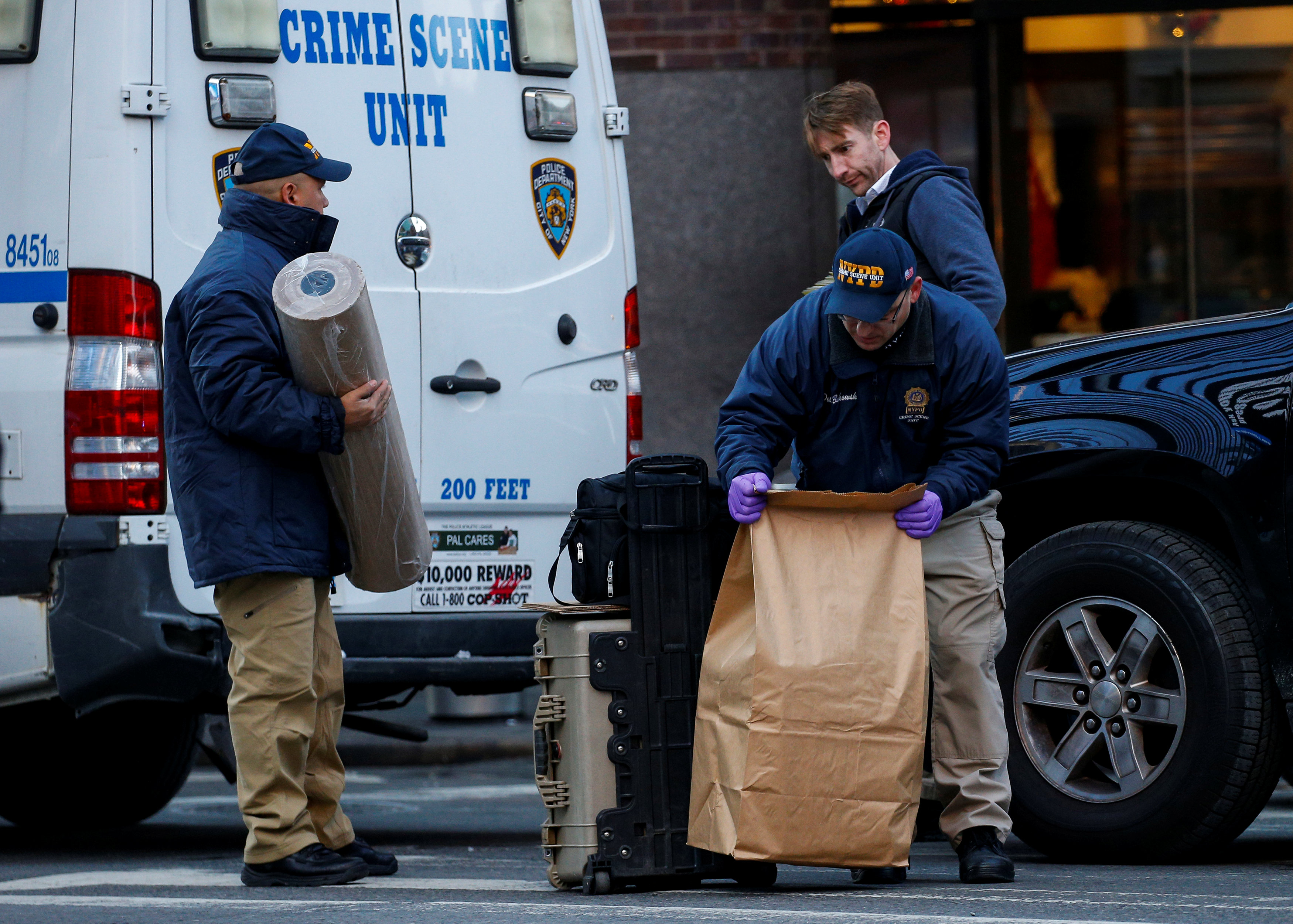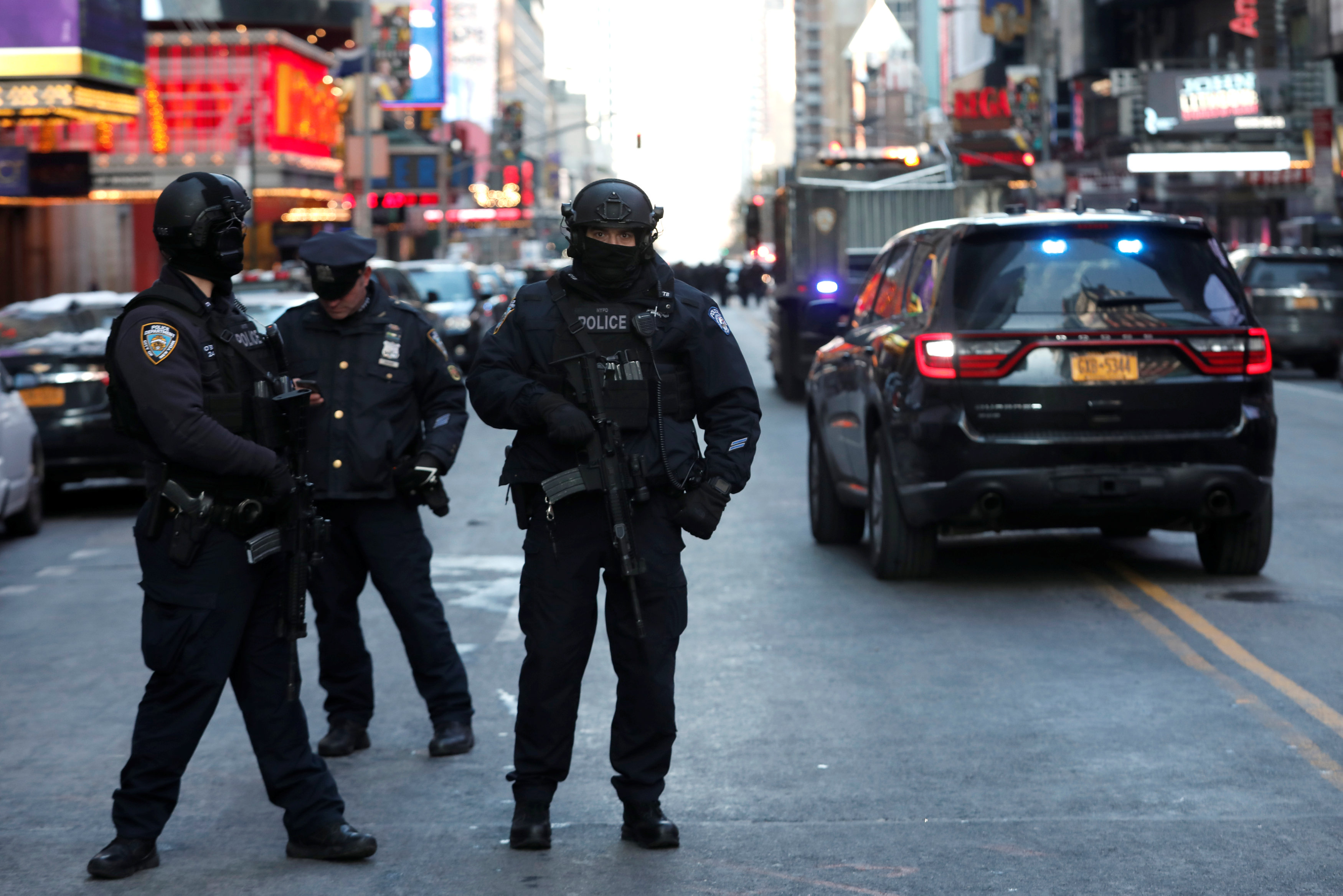
By Ruma Paul and Daniel Trotta
DHAKA/NEW YORK (Reuters) – New York officials on Tuesday said they charged a Bangladeshi man with terrorism, accusing him of setting off a pipe bomb a day earlier in a crowded Manhattan commuter hub, as investigators in his home country questioned his wife.
Akayed Ullah, 27, was charged with criminal possession of a weapon, supporting an act of terrorism, and making a terroristic threat under New York state law, the New York Police Department said, adding U.S. authorities may also bring federal charges.
Investigators in Bangladesh were questioning Ullah’s wife, according to two officials who declined to be identified as they were not permitted to discuss the matter publicly. They did not provide details on the questioning, but said the couple have a six-month-old baby boy.
“We have found his wife and in-laws in Dhaka. We are interviewing them,” one of the police officials told Reuters.
New York police say Ullah set off a pipe bomb in an underground corridor of the subway system that connects Times Square to the Port Authority Bus Terminal at rush hour on Monday morning, injuring himself and three others.
New York Mayor Bill de Blasio called it an attempted terrorist attack, and U.S. officials said it appeared to be a rare if not unprecedented attempt at suicide bombing on U.S. soil.
Ullah survived with burns and lacerations and was taken to hospital in police custody. The three bystanders sustained minor injuries.
The NYPD and the Federal Bureau of Investigation were conducting the investigation in conjunction with other agencies through the Joint Terrorism Task Force, and were asking the public for any information about the suspect.
Authorities in Bangladesh began to track down Ullah’s family soon after news of the attack broke and they first found a cousin, said a third official, Mahiuddin Mahmud.
“We learned from his cousin that he had a wife and a baby in Bangladesh,” Mahmud said.
The cousin, Emdad Ullah, told Reuters that Ullah and his family originally lived in the Chittagong region in southern Bangladesh, but had moved to the capital, Dhaka, years ago.
Ullah married a Bangladeshi woman about two years ago and she lived in Dhaka, the cousin said, adding that he was educated in Bangladesh before he moved to the United States.
Bangladesh’s police chief had told Reuters on Monday that Ullah had no criminal record in his home country, which he last visited in September.
Ullah lived with his mother, sister and two brothers in Brooklyn and was a green card holder, said Shameem Ahsan, consul general of Bangladesh in New York.
A U.S. enforcement official familiar with the investigation into Monday’s attack said officers had found evidence that Ullah had watched Islamic State propaganda on the internet.
IMMIGRATION REFORM
Bangladesh strongly condemned the attack.
“A terrorist is a terrorist irrespective of his or her ethnicity or religion, and must be brought to justice,” the government said in a statement.
U.S. President Donald Trump on Monday said the attack emphasized the need for U.S. immigration reforms.
“America must fix its lax immigration system, which allows far too many dangerous, inadequately vetted people to access our country,” he said in a statement.
The president also criticized the visa program that allowed Ullah to enter the United States in 2011 because he had family members already in the country, saying such family visas are “incompatible with national security.”
H.T. Imam, a political adviser to Bangladesh Prime Minister Sheikh Hasina, said he believed the attack would have no “negative impact” on relations with the United States.
“The U.S. government is well informed about the Bangladesh government’s attitude regarding terror activities,” Imam said.
The U.S. Supreme Court last week handed a victory to Trump by allowing his latest travel ban, targeting people from six Muslim-majority countries, to go into full effect even as legal challenges continued in lower courts.
The ban covers people from Chad, Iran, Libya, Somalia, Syria and Yemen seeking to enter the United States. Trump has said the travel ban is needed to protect the United States from terrorism by Islamist militants.
Bangladesh is not among the countries impacted by the ban.
(Additional reporting by Serajul Quadir; Writing by Euan Rocha and Daniel Trotta; Editing by Scott Malone and Bernadette Baum)








